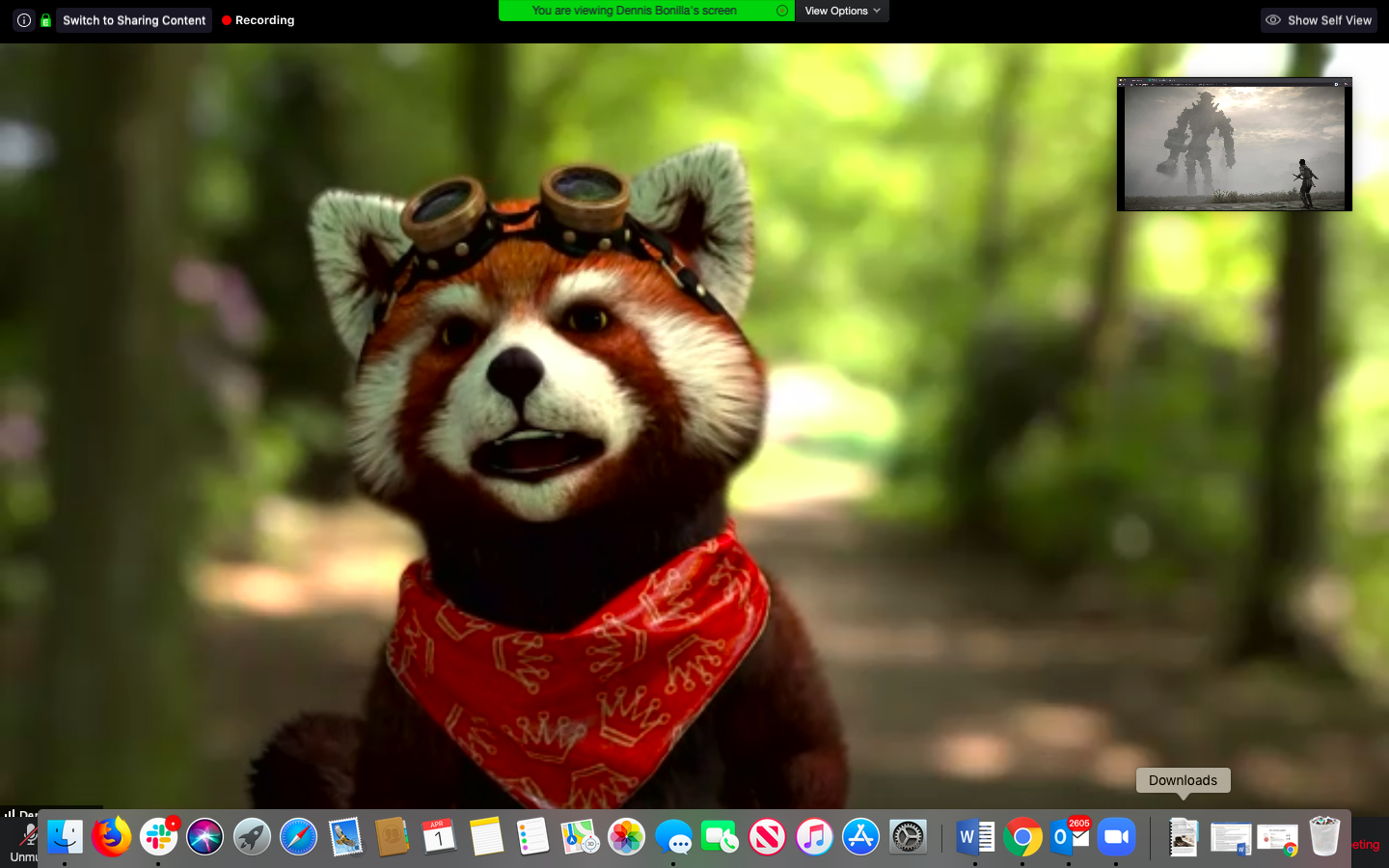Designing the illusion of reality at ASU

Screenshot from a Zoom session of "Designing the Illusion of Reality," a gaming class in the School of Arts, Media and Engineering.
“Designing the Illusion of Reality” is a brand-new class in Arizona State University's School of Arts, Media and Engineering intended to give students a grasp of online gaming.
It was originally listed as in-person, but by the time the course began March 30, it had, like so much else in the country, moved online.
Faculty Associate Dennis Bonilla, who leads the class, says that it’s an opportunity for students “to see how they may design their own systems to create joy, develop community and better understand the world around them” — whether it’s taught online or in a classroom.
“This class is meant to facilitate and empower students to understand interactive systems they engage with daily,” Bonilla said.
On the first day of class, via Zoom, Bonilla appeared to students as an animated red panda with steampunk goggles atop its head and a red bandanna around its neck. As his tail twitched and his panda eyes blinked, Bonilla asked students to name their own favorite games. "Animal Crossing" emerged as a clear group favorite.
Dennis Bonilla greeted his gaming class students in a truly animated fashion. Photo courtesy Dennis Bonilla.
In addition to teaching the gaming class at ASU, Bonilla is the co-founder and chief technology officer for Baltu, a company that creates cutting-edge software using immersive technologies. In his almost 20 years of technology experience, he has helped create data visualization and collaboration systems for NASA and other U.S. agencies, and has supported committees advising President Barack Obama about options for future human spaceflight.
For the first class, Bonilla walked the students through an introduction to the gaming industry.
“We’re on a bit of an accelerated schedule,” he told them. “I want you guys to have fun with this class. I want it to be as community driven as we can make it.”
“This class was meant as (an) experiment to see how we could bring it all together,” said Pavan Turaga, interim director of the School of Arts, Media and Engineering. “We plan to start a gaming concentration within our current degree program at the undergraduate level next year. While one Session B class can’t integrate every aspect of gaming, the ‘data’ we gather from this course will help us develop a more comprehensive set of classes over the next few years for a full concentration pathway.”
According to Turaga, “gaming culture is steeped into the current student population. It is natural that interest in games is surging during this time of isolation and quarantine. We will all be learning as we go along how things progress, but we are confident that games as a content for the class is quite timely.”
Suzanne Wilson contributed to this story.
More Science and technology

A new chapter in national security research at ASU
In 1957, the Soviet Union launched Sputnik, the world’s first artificial satellite, into a low orbit around the Earth. Only the…

One ASU researcher’s fix for freight’s costliest miles
America’s freight system is a miracle of modern logistics — until it isn’t. One snowstorm, one labor shortage, one delayed…

ASU to help Arizona Army installation improve energy, lower costs
In a move that will support resilient energy systems in the places that keep our nation safe, Arizona State University signed a…
